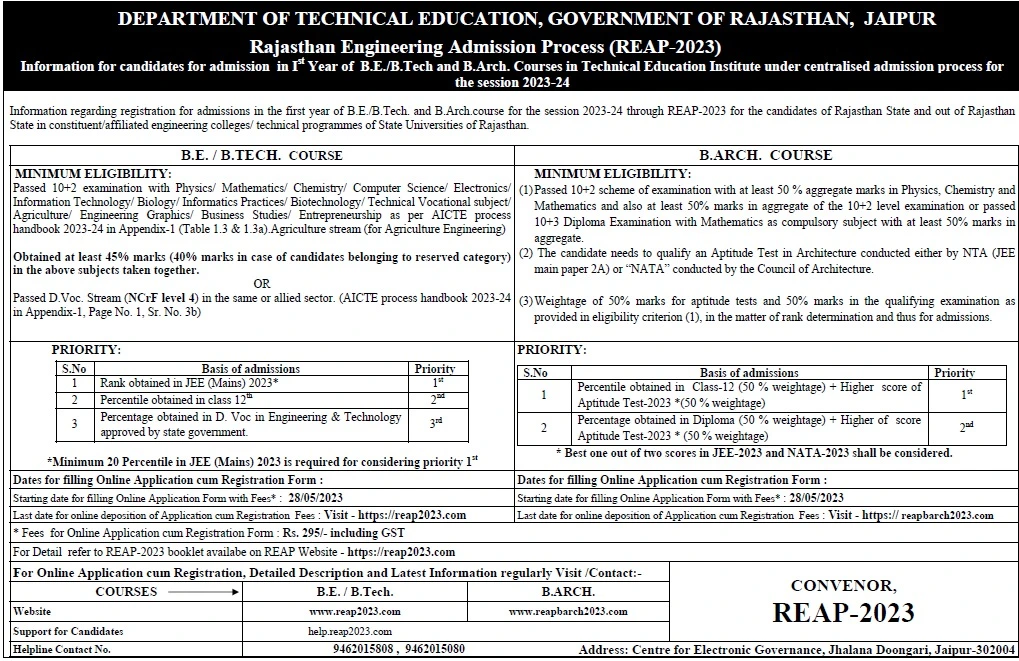
About the Department:
Computer Science & Engineering department was introduced in the campus in 2005. In 2009, the M.Tech degree program was started.
The Department of Computer Science & Engineering (CSE) is a centre of excellence and one of the biggest prominent departments in the campus with a view to offer quality education and in-depth technical knowledge to beginners. Arya is one of the top Computer Science & Engineering colleges in Jaipur, Rajasthan.
The Department offers a 4-year B.Tech programme in Computer Engineering and also offers M. Tech in Computer Science and Engineering.
By the virtue of undergraduate programs, these programs mainly focus on the core concepts of engineering that makes different from the post-graduate programs where the students are mainly focused on the advanced topics in computer engineering and carrying the research in the multiple domains this field.. The main objective of post graduate programs is to dispense a broad spectrum of understanding for solving the engineering problems that are complex in nature.
Pursuing the post-graduate program enables the students to attain great momentum in career advancement. With these programs, candidates are eligible for the high designations varying from the managerial positions to scientist position in government sector. The potential of getting challenging responsibilities as well as high packaged job opportunities are dispensed by such programs.
Message By HOD:
Our department, founded on the principles of innovation, integrity, and inclusivity has always strived to provide a dynamic and supportive learning environment for our students. We believe that computer science is not just a field of study but a driving force for societal progress and transformation.
Academically we are designed to foster critical thinking, creativity, and problem-solving skills. Our faculty members, who are experts in their respective fields, are dedicated to mentoring students and guiding them towards academic and professional success.
We have established state-of-the-art laboratories and research centres that facilitate cutting-edge research in various domains of computer science. Our faculty and students actively engage in research projects that address real-world challenges and contribute to the advancement of technology.
HOD, Computer Science & Engineering
Department Specializations:
Computer Science & Engineering
a) Focus Area:
b) Digital Notes:
With the world advancing so fast, we have started to see several internet and software services growing and therefore paperless department are also becoming a huge trendsetter.
Growing paperless happens to be a much better and greener option than using the reams of paper that could cut down on the expenses but training and security issues could make the whole matter impractical depending on the our needs. One more avenue is to consider running the office with lesser paper instead of using a paperless office.
The motive of notes digitization is to convert our written notes in animated, video & presentable format such that a student will be capable of understanding the concept in a much better way. These digitized notes consist of the video tutorials, examples elaborated in a animated form, the corresponding questions that may be asked in a exam.
Almost every faculty member of the department has contributed in this initiative and all subject notes of the department were made digitized.
c) Student Development and CRT Cell:
Apart from the academics, each and every department of this institute constitutes Student Development Cell (SDC) and Campus Recruitment Training (CRT) that contributes in developing the technical and entrepreneurship skills among the students. The primary motto of these cells is to prepare the students to step-in in the world of technologies.
Industrial Collaboration:
The college has been arranging industrial tours for on-site practical learning of Electronics Engineering projects. These included
List of Program Educational Objectives (PEO)
PEO-1
Graduate students will have thorough knowledge in science and engineering disciplines and have broad-based education in areas of computer science, including hardware, software learning in the structural form of course and curriculum.
PEO-2
Graduates will have solid foundation in engineering field required to solve computing problems using various programming languages and software’s/tools, and students can solve problems through logical and analytical thinking.
PEO-3
Graduates will be trained with good engineering breadth so as to comprehend, analyze, design, and create novel products and solutions for the real-life problem and as per the industry requirements by bridging extra certification courses.
PEO-4
To develop the professional and ethical attitude, effective communication skills and lateral learning for multidisciplinary approach, and an ability to relate engineering issues to broader social context.
PEO-5
To develop the academic environment and persue excellence in leadership, teamwork and skills for lifelong learning needed to persue successful professional career through structured learning, independent self studies, projects, industrial training, Seminars and Internships etc.
List of Program Outcomes
PO-1
Engineering Knowledge:
Apply knowledge of mathematics and science, with fundamentals of Engineering to be able to solve complex engineering problems related.
PO-2
Problem Analysis:
Identify, Formulate, review research literature and analyze complex engineering problems and reaching substantiated conclusions using first principles of mathematics, natural sciences and engineering sciences
PO-3
Design/Development of solutions:
Design solutions for complex engineering problems and design system components or processes that meet the specified needs with appropriate consideration for the public health and safety and the cultural societal and environmental considerations.
PO-4
Conduct Investigations of Complex problems:
Use research–based knowledge and research methods including design of experiments, analysis and interpretation of data, and synthesis of the information to provide valid conclusions.
PO-5
Modern Tool Usage:
Create, Select and apply appropriate techniques, resources and modern engineering and IT tools including prediction and modeling to complex engineering activities with an understanding of the limitations.
PO-6
The Engineer and Society:
Apply Reasoning informed by the contextual knowledge to assess societal, health, safety, legal and cultural issues and the consequent responsibilities relevant to the professional engineering practice.
PO-7
Environment and Sustainability:
Understand the impact of the professional engineering solutions in societal and environmental contexts sustainable development.
PO-8
Ethics:
Apply Ethical Principles and commit to professional ethics and responsibilities and norms of the engineering practice
PO-9
Individual and Team Work:
Function effectively as an individual and as a member or leader in diverse teams and in multidisciplinary Settings.
PO-10
Communication:
Communicate effectively on complex engineering activities with the engineering community and with society at large such write effective reports and design documentation, make effective presentations and give and receive clear instructions.
PO-11
Project Management and Finance:
Demonstrate knowledge and understanding of the engineering management principles and apply these to one’s own work, as a member and leader in a team, to manage projects and in multi disciplinary environments.
PO-12
Life-Long Learning:
Recognize the need for and have the preparation and ability to engage in independent and life-long learning the broadest context of technological change.
Program Specific Outcome
PSO-1:
Knowledge Enhancement in Computing:-
The ability to interpret the foundation and strategy of hardware and software of computer systems. Graduates can solve the problems in the areas related to algorithms, multimedia, data analytics, cloud computing, human computer interface, robotics, artificial intelligence and networking for efficient design of computer systems.
PSO-2 :
Software Design and Development:-
The ability to understand the software development lifecycle and methodologies of software systems. Graduate will learn competent skills and knowledge of software design process. Graduate will be acquaintance to practical proficiency with a broad area of programming concepts.
Course Outcomes (COs)
| S.No. | Course Code | Course Title | Course Outcomes (COs) | |
|---|---|---|---|---|
| 1 | 1MCS1-01 | Statistical Methods in Computer Science | CO1:: | Understand the basic notions of discrete and continuous probability distributions of Random samples collecting and evaluating process |
| CO2:: | Understand the method of inference, Role of the sampling distribution, and graphical analysis of random sample data | |||
| CO3:: | Analyze and Perform correct and meaningful statistical analyses of simple to moderate sample observations | |||
| 2 | 1MCS1-02 | Digital Forensics | CO1:: | Explain the building block of Data Forensics and overview of an exciting growing field of Data Forensics analytics |
| CO2:: | Understand and apply the real-life application of Data Forensics | |||
| CO3:: | Select and apply current computer forensics tools. | |||
| CO4:: | Apply and Perform recovery of digital evidence from various digital devices using a variety of software utilities. | |||
| CO5:: | Identify and apply current practices for data discovery recovery and acquisition. | |||
| 3 | 1MCS2-11 | Machine Learning | CO1:: | Understand the basic mathematics behind supervised machine learning models along with various applications in the real world. |
| CO2:: | Construct and evaluate the unsupervised machine learning models through various clustering algorithms | |||
| CO3:: | Evaluate the machine learning models preprocessed through various feature engineering algorithms. | |||
| CO4:: | Apply reinforcement learning algorithms to solve real-time complex problems with an understanding of the trade-offs involved | |||
| CO5:: | Design the recommender system using natural language processing. | |||
| 4 | 1MCS2-16 | Data Preparation and Analysis | CO1:: | Gain knowledge to identify the data parsing and transformations. and understand the difference between data and information with formats. |
| CO2:: | Explain the basic concept of data cleaning for valuable information with minimum consistency checking. | |||
| CO3:: | Understand statistical exploratory analysis with hypothesis generation. | |||
| CO4:: | Design visualizations for exploratory analysis and understand the concept of correlations and connections for geo-located data. | |||
| CO5:: | Learn data transformations and segmentation to solve statistical problems. | |||
| 5 | 1MCC3-21 | Research Methodology and IPR | CO1:: | Understand research problem formulation. |
| CO2:: | Analyze research-related information. | |||
| CO3:: | Understand and follow research ethics. | |||
| CO4:: | Understand that IPR protection provides an incentive to inventors for further research work and investment in R&D, for economic growth and social benefits. | |||
| CO5:: | Apply basic data analytics techniques: probability distribution, linear regression, ANOVA | |||
| 6 | 1MCS1-06 | IoT Based Systems Design Lab | CO1:: | Recognize the factors that contributed to the emergence of IoT. |
| CO2:: | Use real IoT protocols for communication | |||
| CO3:: | Secure the elements of an IoT device | |||
| CO4:: | Design an IoT device to work with a Cloud Computing infrastructure. | |||
| CO5:: | Transfer IoT data to the cloud and in between cloud providers | |||
| 7 | 1MCS1-07 | Network Simulation and Security Analysis Lab | CO1:: | Identify infrastructure components and the roles they serve, and design infrastructure including devices, topologies, protocols, NS3 software, management, and security. Analyze the performance of enterprise network systems. |
| CO2:: | Simulate the routing protocol on network simulator 3 create, and install the nodes, and make connections between them. | |||
| CO3:: | Understand the design of controllers SDN network with multiple nodes. | |||
| CO4:: | Learn how to install, configure, and make available the services of various servers. | |||
| CO5:: | Learn various types of network-based attacks and local attacks. | |||
| 8 | 2MCS1-01 | Data Science | CO1:: | Explain the building block of Data Science and overview of an exciting growing field of Data Forensics analytics |
| CO2:: | Understand and apply the real-life application of Data Science. | |||
| CO3:: | Select and apply current Data Science programs and tools. | |||
| CO4:: | Apply Perform and demonstrate proficiency with statistical analysis of data. | |||
| CO5:: | Identify and apply current practices for data discovery and acquisition using Data Science. | |||
| 9 | 2MCS1-02 | Distributed and Parallel Algorithms | CO1:: | Identify the concepts of parallel processing and understand the particular problems arising in the programming of parallel machines |
| CO2:: | Compare and Evaluate the parallel computing models and the “parallel way of thinking” required in the design of parallel algorithms | |||
| CO3:: | Apply the basic algorithmic techniques and design algorithms in shared memory as well as distributed memory environment | |||
| CO4:: | Acquire knowledge of those problems which have been perceived as intractable for parallelization | |||
| CO5:: | Understand and be able to apply basic parallel programming principles in a shared/distributed memory environment | |||
| CO 6: | Classify the strengths and limitations of parallel computing approaches to problem-solving | |||
| 10 | 2MCS2-11 | Big Data Analytics | CO1:: | Explain the building block of Big Data and overview of an exciting growing field of big data analytics |
| CO2:: | Understand and Apply the programming aspects of map-reduce | |||
| CO3:: | Analyze pig architecture to make easier Hadoop programming | |||
| CO4:: | Applying Structure to Hadoop data with Hive | |||
| CO5:: | Design applications to solve complex real-world problems for decision support | |||
| 11 | 2MCS2-14 | Wireless Sensor Network | CO1:: | Describe the concepts of Wireless Sensor Networks with issues and challenges. |
| CO2:: | Illustrate the design principles of gateway, WSN communications, and single node architecture with hardware components and design constraints. | |||
| CO3:: | Interpret the MAC and Routing protocols for Wireless Sensor Networks. | |||
| CO4:: | Select operating systems used for WSN. | |||
| 12 | 2MCS1-06 | High Performance Computing Lab | CO1:: | Identify different GPU architecture basics in terms of functional units. |
| CO2:: | Learn how to install parallel programming platforms OpenMP, and CUDA platform. | |||
| CO3:: | Apply GPU kernel implementation using CUDA/OpenMP. | |||
| CO4:: | Evaluating program performance using architecture-specific details like GPU thread scheduling, and shared memory. | |||
| CO5:: | Develop a process on GPU that uses huge datasets like image data, and text data. | |||
| 13 | 2MCS1-07 | Data Analytics Lab | CO1:: | Understand and implement the basics of data structures like Linked lists, stack, queue, set, and map in Java. |
| CO2:: | Demonstrate knowledge of big data analytics and implement different file management tasks in Hadoop. | |||
| CO3:: | Understand Map Reduce Paradigm and develop data applications using a variety of systems. | |||
| CO4:: | Analyze and perform different operations on data using Pig Latin scripts. | |||
| CO5:: | Illustrate and apply different operations on relations and databases using Hive. | |||
| 14 | 3MCS2-03 | Social Network Analysis | CO1:: | Work on the internal components of the social network |
| CO2:: | Model and visualize the social network | |||
| CO3:: | Mine the behavior of the users in the social network | |||
| CO4:: | Apply social networks in real-time applications | |||
| CO5:: | Predict the possible next outcome of the social network | |||
| 15 | 7ME6-60.2 | Quality Management | CO1:: | To understand the concept of Quality |
| CO2:: | To understand the Implication of Quality on Business | |||
| CO3:: | To Implement Quality Implementation Program | |||
| CO4:: | To have exposure to challenges in Quality Improvement Programs |
Departmental Lab's:
The department has following well- equipped laboratories that offer more that the prescribed practical needs as per RTU Curriculum :
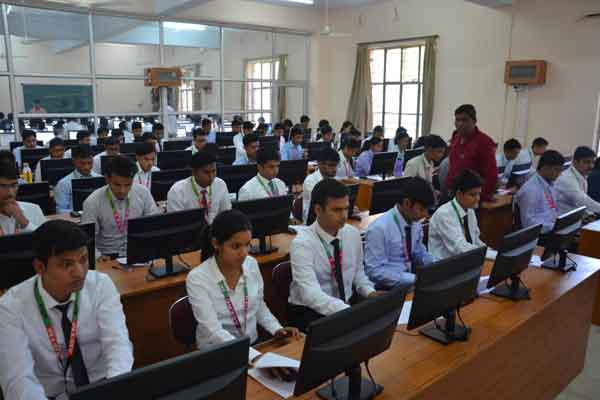
Operating System Simulation Lab
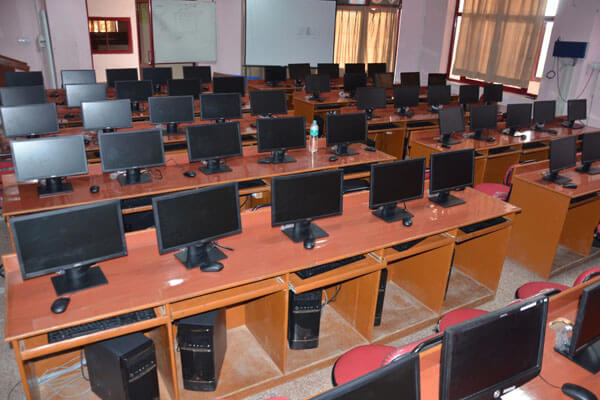
Compiler Design Lab
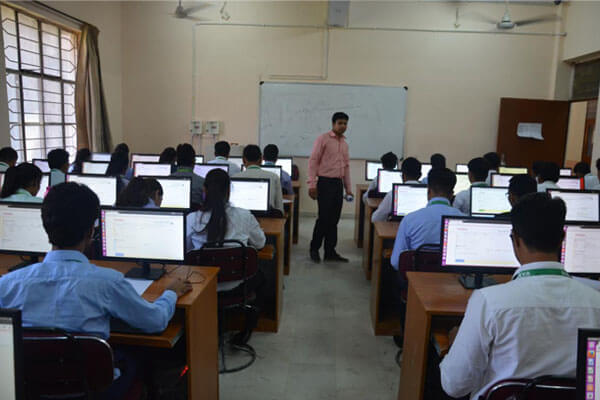
C Programming Lab
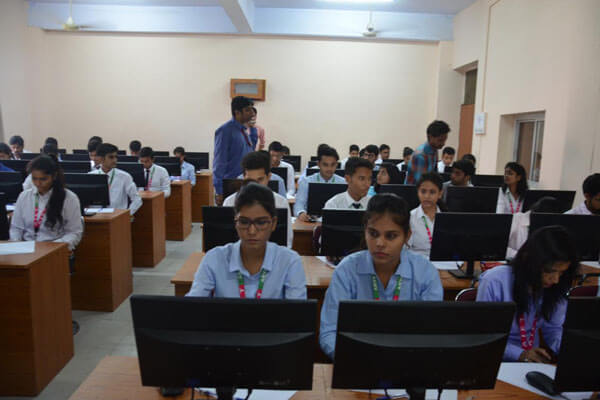
Project Lab /R&D Lab
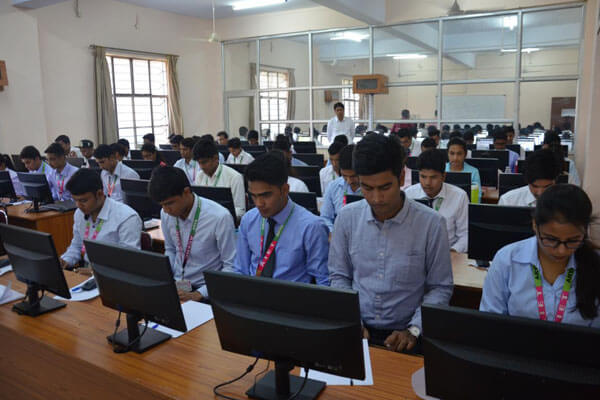
FPGA Lab
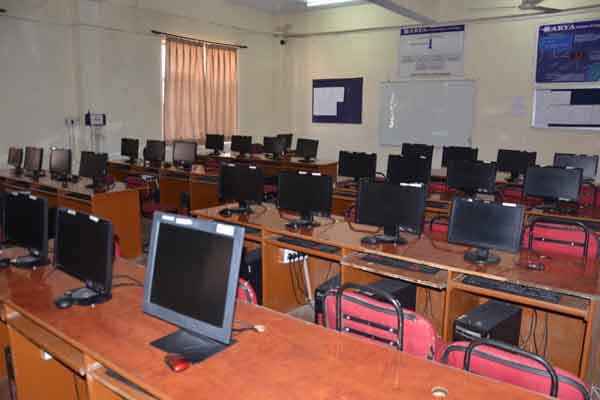
Database Lab

Linux And Network Programming Lab






